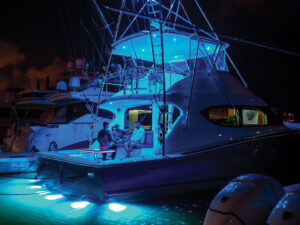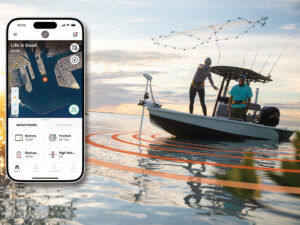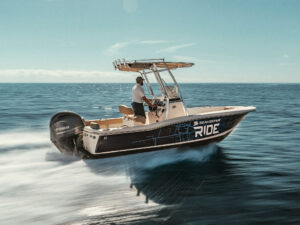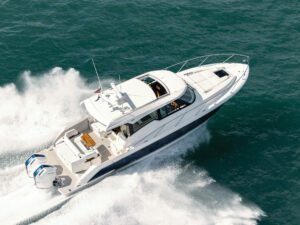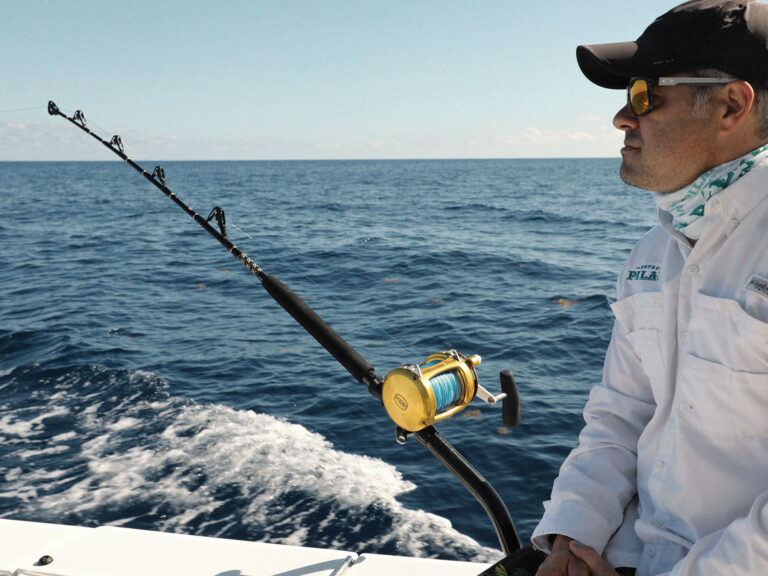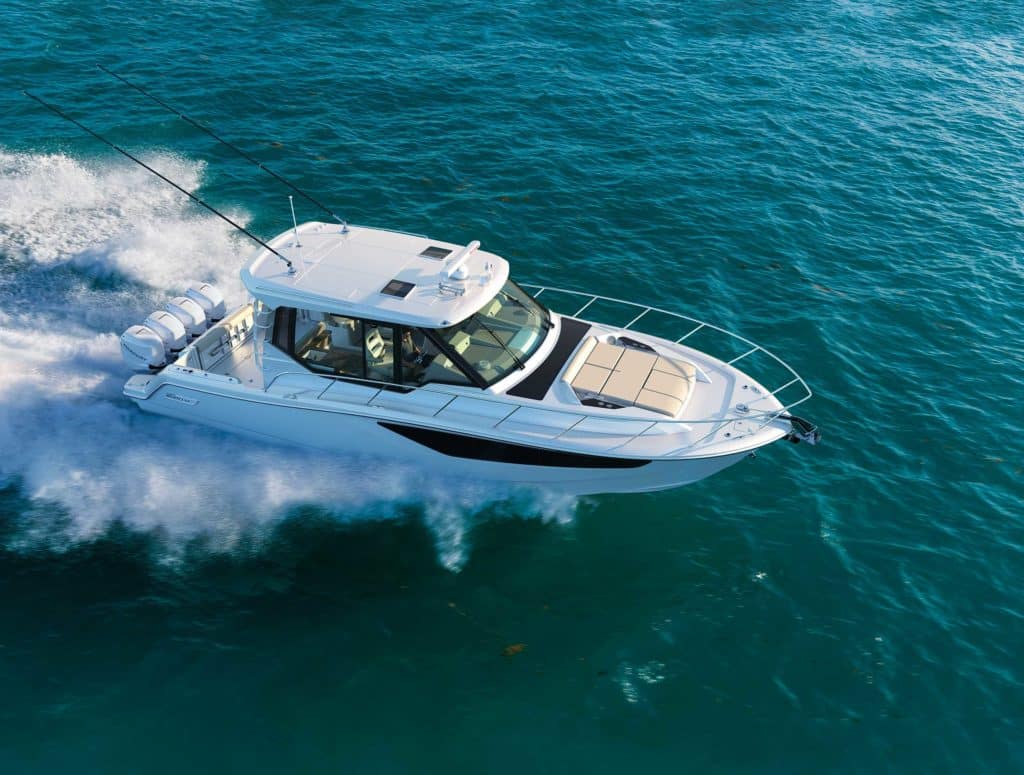
The luxury touch to the 405′s fishability begins with the expanded pilothouse, a wraparound glass enclosure that gives the captain a superior view of the waters ahead and obstacles approaching from abeam while enabling him to keep an easy eye on the fishing action in the cockpit.
Full aft curtains can enclose the area for fishing in inclement weather, but on our clear spring fishing day, we didn’t need curtains, nor the optional air conditioning or heat, to remain comfortable.
There was ample room in the cockpit for more than the two kites we had on board. The space would be magnified by the foldaway transom seat in place of the summer kitchen on our test boat.
The lounge, large enough to seat at least three when deployed, would make a cozy spot to sit and enjoy the ride out. Mezzanine seating to port and starboard of the two-step walkway leading to the command deck offered another option for comfort.
When the nine-hour fishing trip seemed doomed to end in failure, the main-deck dinette converted into a double lounge, accommodating a nap for one crewmember. Additional sleeping options included a spacious master stateroom below, an aft cabin, and the galley’s dinette amidships, all perfect for snoozing.
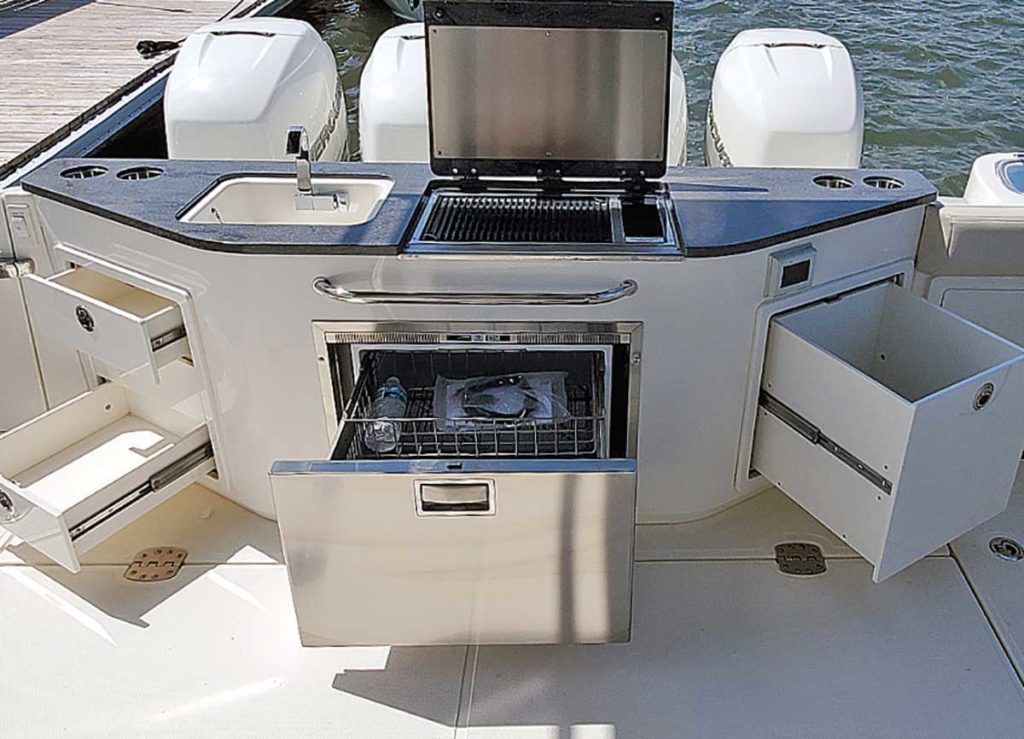
The cockpit summer kitchen, complete with grill, fridge and fresh water, added social assets without interfering with fishing. It’s trapezoidal footprint left the cockpit corners open, giving access to the livewell located to port on the transom, and allowing secure footing close to the fish, making the fight a more intimate battle.
While kite-fishing, the captain’s work was made simpler by Mercury’s Skyhook functionality, which kept the boat position and speed constant.
Just when the day seemed lost, we came across a school of sailfish and enjoyed hot action for over an hour. The portside boarding door made it easy to manage and dehook the fish, and pose for the obligatory selfies-on-a-stick.
Had these been tuna or swordfish, we simply could have slid them through the door and into the port or starboard electrically chilled fish lockers.
There were 10 standard rod holders on board, three on each gunwale, and four on the transom.
The cockpit sunshade and the height of the hardtop made rocket launchers impractical, but three rod holders on each side of the hardtop supports added storage for six more outfits.
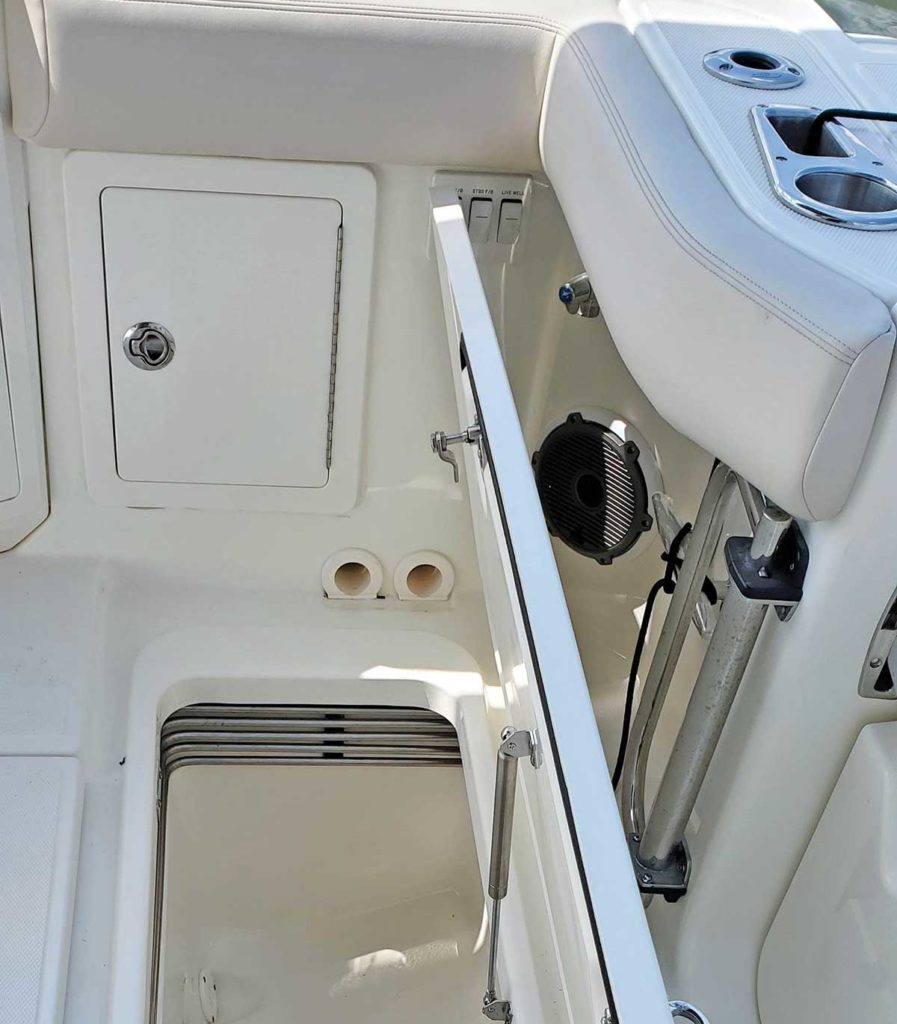
Tackle rigging on the test boat was handy. The mate used both the helm deck bar and the mezzanine drawers. On the port side, one of three drawers pulled out to give the seat a footrest and easier access to the seat.
When not interested in fishing, you can kick back at the bow, where Whaler put an exclusive dual lounge with a reclining backrest that folds flat for sunning.
Cup holders and stereo speakers are conveniently positioned. And if the sun is your enemy, a stowable sunshade can protect the area without obstructing the captain’s view. Unknown to me, a Seakeeper S6 was active when I stepped on board, and even though it was a 40-footer, the Whaler’s pitch and roll seemed softer, muffled if you will, so I asked the captain to deactivate it. He did so by tapping on the screen of a Raymarine—there were dual 19-inch Axiom XLs in place—and deactivating it with the SeaTalk digital controls.
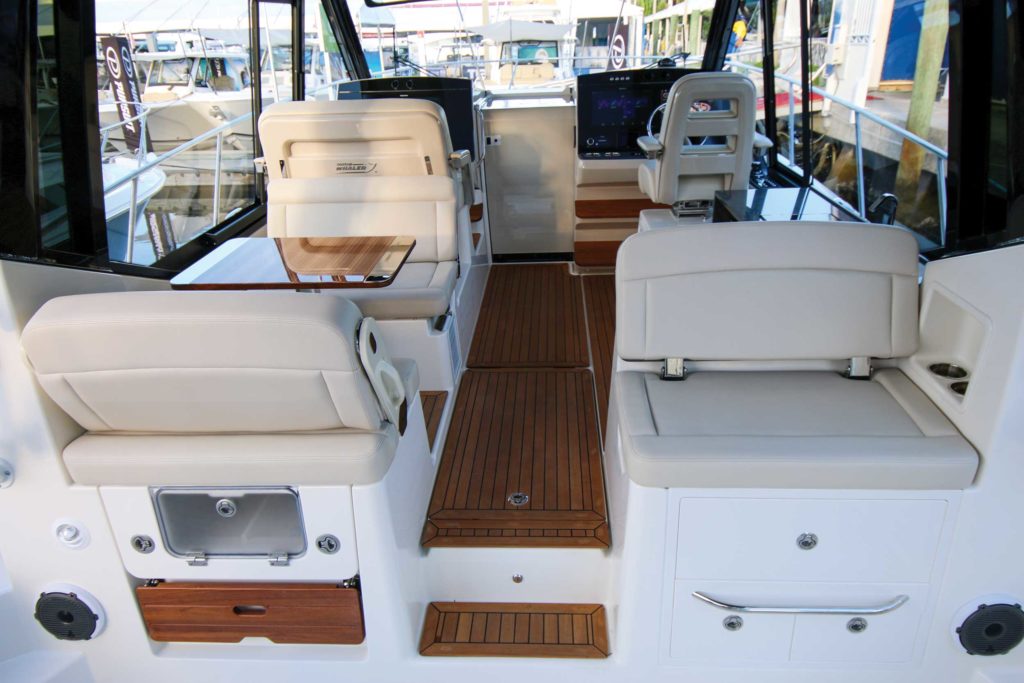
The boat was still comfortable, but it was clearly more so with the Seakeeper on. While kite-fishing, some crewmembers could have gotten sick without it.
Most everything on board had a digital switch on the Raymarine displays via their exclusive SeaTalk bus system.
A graphic user interface made it iPad-easy to navigate to the switches and equipment you wanted to turn on or off. SeaTalk has proven reliable, as have most digital operating buses in the marine market, and the self-diagnosing system can tell you if a device has failed or, say in the case of a light, a bulb has burned out.
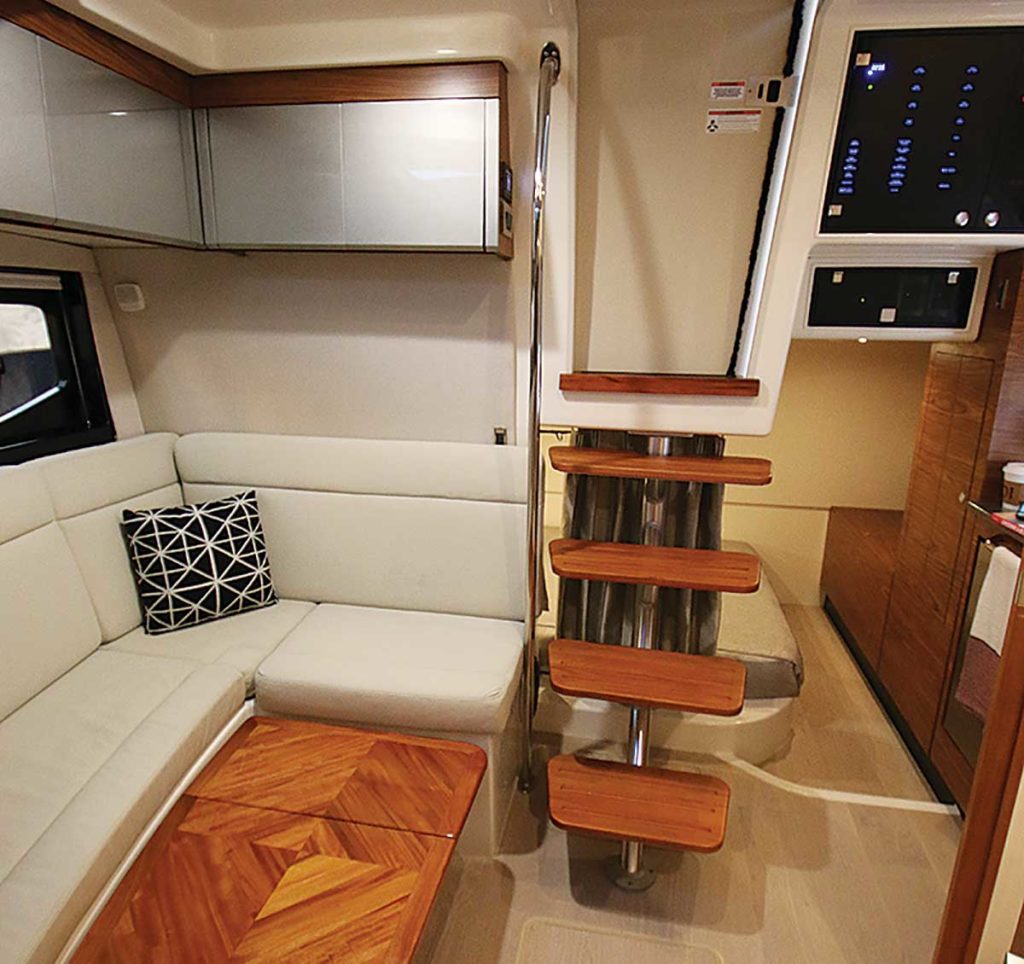
So, how did the 405 Conquest run with four Mercury Verado 350s? Beautifully, breaking 51 mph at 6,300 rpm while running at wide-open throttle, and cruising comfortably at 30 mph while burning 47 gph, economical for a boat this size.
Better speed and fuel economy could be achieved by forgoing the installation of the Seakeeper, which would lighten the overall load, but that would be a tradeoff requiring careful consideration at build time.
Specifications
Length: 41′4″ | Beam: 13′6″ | Draft: 31″ | Deadrise: 19 degrees | Fuel: 620 gal. | Weight: 22,400 lb. (plus power) | Max HP: 1,881 | Price: $1,004,009 | Boston Whaler: bostonwhaler.com
Test Conditions
Weather: Sunny | Location: Stuart, Florida | Wind: Southeast, 12 knots | Sea State: 3- to 5-foot chop | Test Load: Four adults, 200 gallons of fuel, 500 pounds of gear

